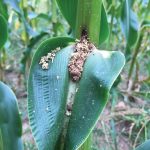
Acid-friendly alfalfa varieties under development
Agriculture and Agri-food Canada researchers breeding alfalfa tolerant to acidic soils, drought and flooding

Sustainability claims harder to make under updated Competition Act
More lawsuits and further decline in public trust possible, panelists say

Public trust in food system sees sharp decline
Canadians are now more cynical about food and farming according to Canadian Centre for Food Integrity data

Changes possible to international plant gene sharing treaty
Fees for accessing global gene banks could bring additional costs to researchers, farmers

Report highlights optimism, resignation in agriculture sector
Belief that industry and government can remedy policy, extreme weather and trade issues varies across stakeholders

Report highlights optimism, resignation in agriculture sector
Belief industry and government can remedy policy, extreme weather, and trade issues varies considerably

(Guest) Editorial: Time to farm with nature

Canadians trust farmers despite food costs – for now
Public Trust: How farmers have maintained, and could risk, public trust

Wanted: A long-term vision for the future of Canadian agriculture
Greater collaboration, consultation and issue ownership required to manage major disruption, says report

Bt-resistant corn borer concern grows
Critical tools for controlling corn borer could be lost

